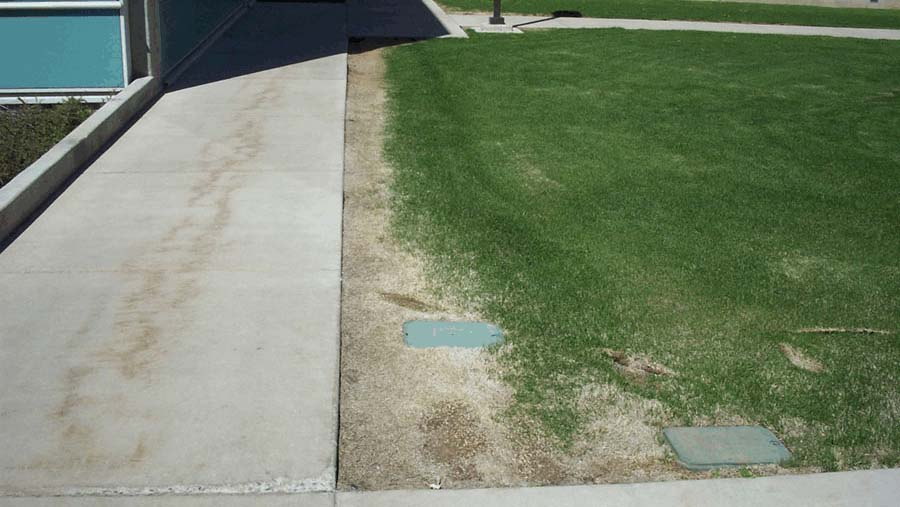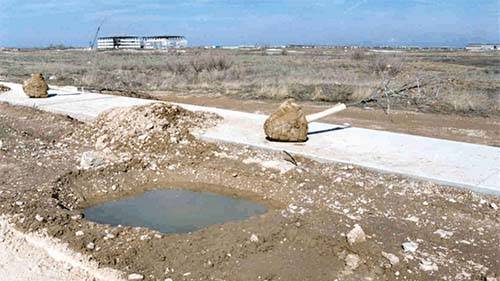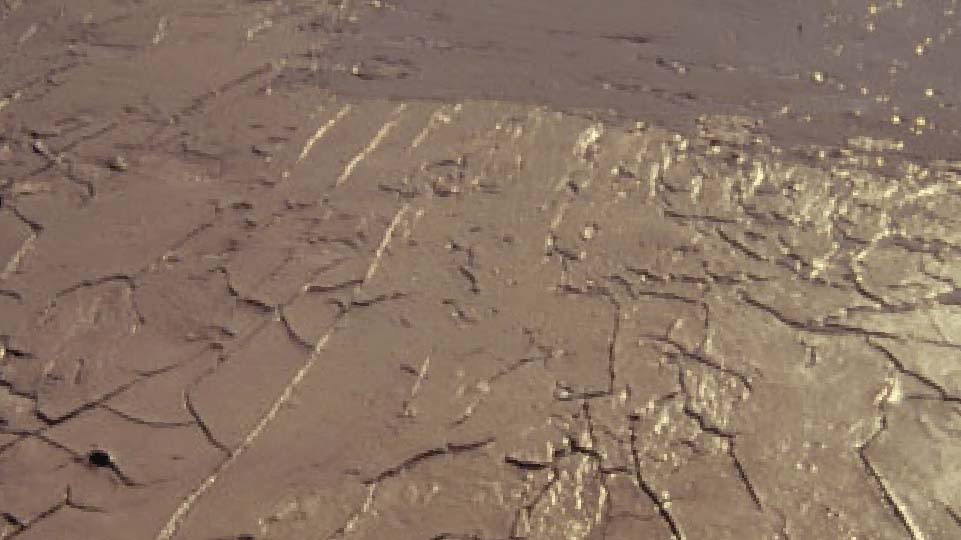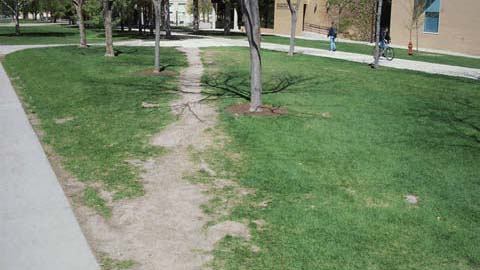Why are my soils so alkaline? Can I lower my soil's pH?
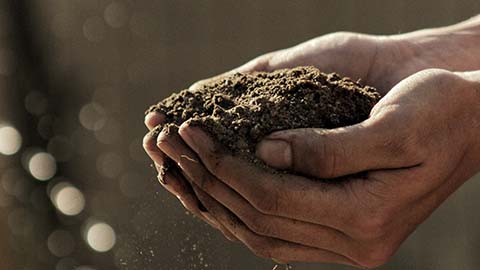
Altering soil pH is another common question I encounter in both gardening and agricultural settings across the state. With so much interest in acid-loving plants like blueberry, azalea (any rhododendron species, really), silver maple, etc., many folks wish they could easily reduce their high, alkaline pH levels to accommodate them. Sadly, this is at best impractical, and on scale for most soils, practically impossible.
But wait! Aren’t there fertilizers, organic matter amendments, elemental sulfur, and similar products that will acidify my soil? The answer is both yes and no (typical professor thing to say, right?). There are products that will produce acid as they interact with your soil and that temporarily and locally produce acidity. The issue is not that these materials do not form acid, but that our soils consume acid quite overwhelmingly based on how much calcium carbonate (or calcite) there is in typical Utah soils.
Calcite is an evaporite mineral, meaning it concentrated and solidified (or, chemically speaking, precipitated) in arid zone soils over eons of time as soluble carbonate minerals were deposited from rock weathering, dust deposition, flood waters and sediments, etc., then concentrated to high enough levels upon excess evaporation, and finally crystallized into an evaporite solid in soils. So much of this mineral has built up in our arid area, that Utah soils contain typically between 15-40% calcium carbonate by weight (some lower, but some also quite a bit higher). This large calcite bank in soils is a huge, acid-buffering, pH-controlling reservoir.
Let me explain. As calcite dissolves in the presence of acid, the byproducts are other soluble salts (like gypsum, calcium chloride, etc.), water, and carbon dioxide gas (or CO2). All the acid is consumed in that reaction and the pH of the soil (or the measure of the presence of acid) remains unchanged. In fact, for every 1% calcite by weight in the top foot of a quarter-acre lot, there is about 10,000 lbs. of calcite! All of that calcite would have to be dissolved before any excess acid would build up and the pH of the soil decrease. So, how much acid would it take to do that, you ask? Given the chemistry involved, it would take approximately an equal amount of pure sulfuric acid just to dissolve that calcite, but remember, most Utah soils don’t just have 1% calcite, they may have 15, 20…40 times or more than that!
Now you see the problem of scale that presents itself. To add to the whole issue, all raw water in this state contains large quantities of dissolved calcium carbonate (hence, hard water spots on your glassware and your shower door, white crusty deposits on your bathroom and kitchen faucets, etc.) which is another relentless source of additional calcite we add with every drop of irrigation water.
Better than trying to change pH, one should work with local nurseries and Extension personnel in horticulture and agriculture who can steer them to plants better equipped to handle our alkaline, calcite-rich conditions. Look for plants that are more efficient at taking up micronutrients (especially iron and zinc) from alkaline soils, and make sure to add regularly the nutrients those plants need which are less available in high pH, calcium carbonate-rich soils such as phosphorus, iron, and sometimes zinc. You will be spending your time and hard-earned money far more wisely than trying to change something you cannot practically accomplish.
If one is determined to grow acid-loving plants, then perhaps container plantings might be an option. In a container, one can use an acidic planting medium like peat, potting soil, etc., rather than the local, calcite-laden soil. Then one would only have to deal with acidifying the water to get rid of that source (a non-trivial source, mind you) of dissolved calcium carbonate that will alkalinize the container medium over time if left un-checked (for details of that process see the Extension document on blueberry noted below).
That all said, there are a few places in the state where the soils may be alkaline (above a pH of 7) but are not high in calcium carbonate content. These soils may hold some hope of having their pH lowered. Soil tests to determine free lime or calcium carbonate content are available, and for soils with a pH less than 7.5, may indicate the potential for use of acidifying amendments. Care would still need to be taken in irrigation water treatment to avoid constant buffering to an alkaline condition from dissolved carbonate in the water. Soils above a pH of 7.5 are generally high in calcium carbonate content, and likely do not warrant the extra cost of testing specifically for it.
Additional Reading
- Managing Soil pH in Utah
- Blueberries in Utah? Difficult, but Maybe Not Impossible
- Solutions to Soil Problems: High pH
Authors
Grant Cardon,USU Extension Soils Specialist
Related Research



